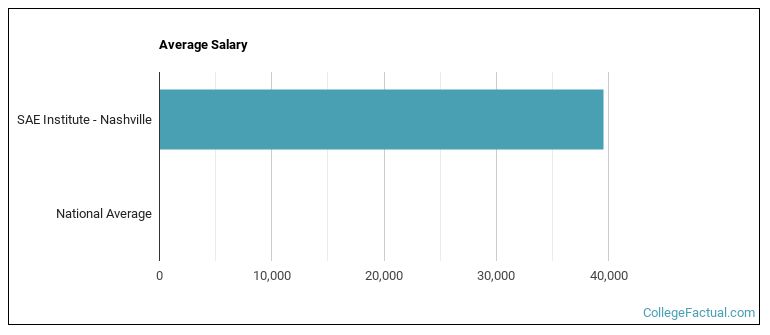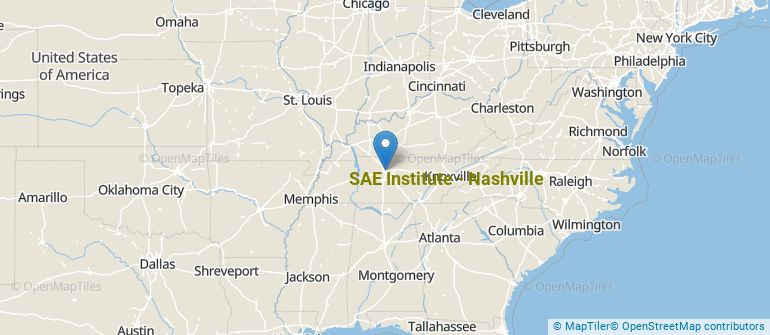 by our College Data Analytics Team
by our College Data Analytics TeamExplore the best ranked schools for the programs you are most interested in.
SAE Institute - Nashville was not ranked in College Factual's 2025 Best Overall Colleges report. This could be for a number of reasons, including lack of data.
If you are worried about getting into SAE Institute - Nashville, don't be. The school has a liberal open admissions policy, which means you only need to meet basic requirements in order to be admitted. Still, be sure to submit a complete application and provide any other requested materials.
At SAE Institute - Nashville, the student to faculty ratio is an excellent 11 to 1. That's much better than the national average of 15 to 1. This indicates that many classes will probably be small, and students will have ample opportunites to work closely with their professors and classmates.
Another measure that is often used to estimate how much access students will have to their professors is how many faculty members are full-time. The idea here is that part-time faculty tend to spend less time on campus, so they may not be as available to students as full-timers.
The full-time faculty percentage at SAE Institute - Nashville is 29%. This is lower than the national average of 47%.
During the 2017-2018 academic year, there were 211 full-time undergraduates at SAE Institute - Nashville.
The net price is calculated by adding tuition, room, board and other costs and subtracting financial aid.Note that the net price is typically less than the published for a school. For more information on the sticker price of SAE Institute - Nashville, see our tuition and fees and room and board pages.
It's not uncommon for college students to take out loans to pay for school. In fact, almost 66% of students nationwide depend at least partially on loans. At SAE Institute - Nashville, approximately 80% of students took out student loans averaging $7,710 a year. That adds up to $30,840 over four years for those students.
Get more details about paying for SAE Institute - Nashville.

See which majors at SAE Institute - Nashville make the most money.
Get more details about the location of SAE Institute - Nashville.

Contact details for SAE Institute - Nashville are given below.
| Contact Details | |
|---|---|
| Address: | 7 Music Circle N, Nashville, TN 37203 |
| Phone: | 615-244-5848 |
| Website: | usa.sae.edu/ |
| Facebook: | http://www.facebook.com/expressioncollege |
| Twitter: | https://twitter.com/expression |
| Most Popular Majors | Bachelor’s Degrees | Average Salary of Graduates |
|---|---|---|
| Audiovisual Communications | 560 | NA |
| Arts & Media Management | 40 | NA |
| Film, Video & Photographic Arts | 17 | NA |
Footnotes
*The racial-ethnic minorities count is calculated by taking the total number of students and subtracting white students, international students, and students whose race/ethnicity was unknown. This number is then divided by the total number of students at the school to obtain the racial-ethnic minorities percentage.
References
More about our data sources and methodologies.